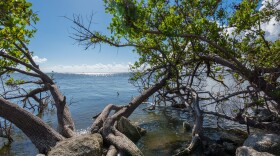Anyone running for office in Brevard County knows, here, to stand a chance, they must support the beloved Indian River Lagoon. But what does that really mean?
This election season, many state and local offices representing Brevard County are up for grabs, and the lagoon has been a talking point. Candidates across the political spectrum vow to help restore the nationally renowned, biologically diverse estuary to better health, if elected.
It’s a daunting challenge. The Indian River Lagoon is chronically polluted, from wastewater discharges, agricultural runoff and highly concentrated muck, built up over time from legacy nutrients which decompose and cycle back into the lagoon.
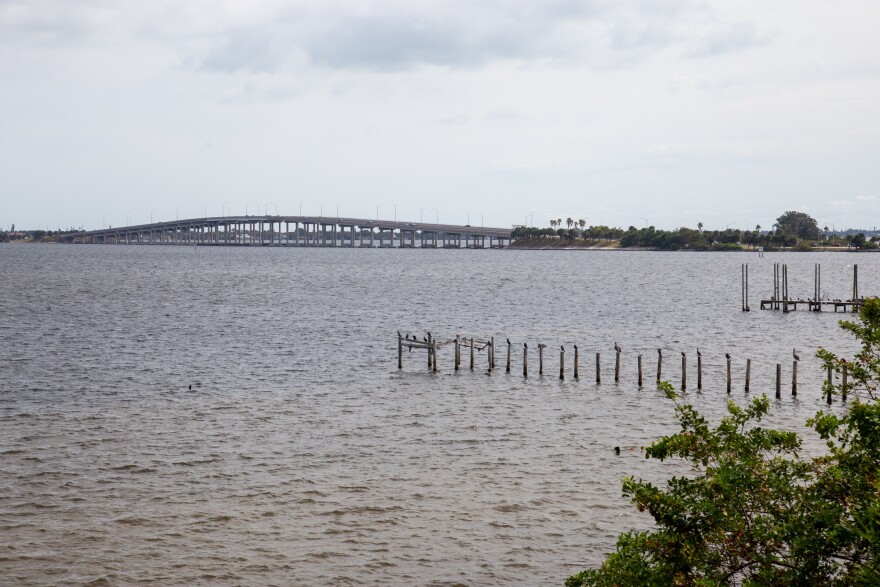
Still, progress on restoring the lagoon is happening. This year in particular, seagrass growth is rebounding in many parts of the lagoon, according to ocean experts and advocates who regularly monitor the body of water.
Much of the progress is spearheaded by Brevard County’s Save Our Indian River Lagoon (SOIRL) program, funded by a half-cent sales tax voters approved in 2016. The program funds projects to reduce pollution coming into the lagoon, and to remove some of the harmful nutrients already there.
For the last three years, Brevard County Commission District 5 candidate Vinnie Taranto Jr. has served as chair for the advisory citizens’ oversight committee for SOIRL, which he’s been a member of for eight years. In that time, he has learned the lagoon’s biggest challenges are the everyday, invisible ones, Taranto said.
“You flush the toilet and it goes away; you don't know. But if you've got an old septic tank, or leaky laterals, even, if you're on sewer — that stuff is invisible to you,” Taranto said. “You don't see how it's harming the lagoon.”
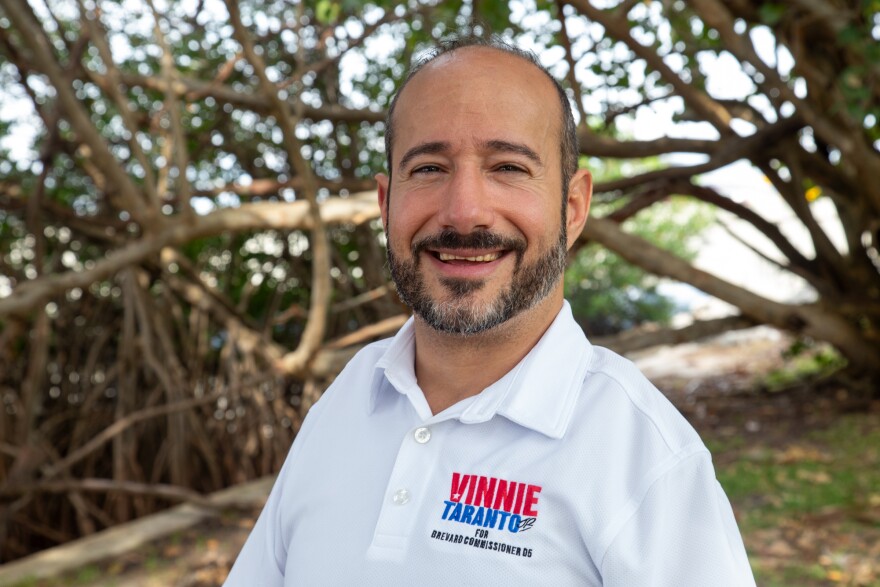
So far, SOIRL collected more than $401 million from sales tax revenues to help the lagoon. As of last year, funded projects were either in the process of removing, or had already removed more than 1.1 million pounds of nitrogen from the lagoon.
But SOIRL is slated to sunset at the end of 2026, unless it’s put on the ballot again and voters renew it before then. Earlier this year, Taranto said he asked current county commissioners to consider putting it on this year’s ballot, but they ultimately decided against it.
“If you want to get the most people to look at an issue, this year might have been the best year,” Taranto said. “In 2026, it will be a midterm. And historically, the turnout hasn't been so good.”
“But maybe the turnout will be great,” Taranto adds.

Taranto is nothing if not an optimist, including when he speaks of his opponent for Brevard’s District 5, Florida Representative Thad Altman, representing Florida District 32. Altman, who didn’t respond to a request to speak for this story, has served in public office for more than two decades, collectively; he assumed his current role in 2022, but also previously served in the state House and Senate, as well as Brevard County Commission Chair.
“I honor and thank and am grateful for what he's done,” Taranto said, speaking of Altman. “The big difference with us? It starts with that technology edge.”
If Taranto becomes the next commissioner for District 5 in south Brevard County, he plans to lean on his technology and communication skills to foster a collaborative spirit toward restoring the lagoon, Taranto said.
“It’s people power, you know? It’s working together on people to solve issues,” Taranto said.
He’s committed to holding virtual town halls each week after meeting agendas are released, so people can weigh in and ask him questions, if elected.
“I've grown up in technology, understand technology,” Taranto said. “I want to utilize that to allow people to live their busy lives, let them be able to put food on their table, let them be able to support their family, but also let them know what government does, and how we can better serve them.”
Meanwhile, up toward the north of Brevard County in District 1, three candidates from three different parties, all relatively new to politics, are vying for the seat. All three say they’re proud to have intentionally run a respectful campaign, refusing to talk down at or about one another.
“We all have families. We know that going into politics can be a brutal experience,” said Democratic candidate Bryan Bobbitt, who formerly served on the Titusville Environmental Commission and as executive director of Keep Brevard Beautiful, a nonprofit.
At the start of election season, “we all sat down and were like: look, we have a responsibility to show the people what politics can be, and what it should be,” Bobbitt said.
“Honestly, we agree on a lot of the problems. We just disagree on the policy to get it corrected, in some areas,” Bobbitt said. “In some areas, we just completely agree altogether.”

All three District 1 candidates agree restoring the lagoon is a priority. They also agree: to protect the lagoon and the county’s natural resources more broadly, developers — and local governments — need to be held accountable.
For example, Bobbitt said he’d like to see Titusville’s voter-approved, Right to Clean Water charter amendment go even further.
“I want to make that county-wide. I want the citizens to be able to hold us accountable, if we're not doing what's right for the community,” Bobbitt said. “The Right to Clean Water gives the people the power to do that.”
That’s if the amendment stays in effect: recently, the city of Titusville filed its third appeal of the charter amendment, which voters in 2022 approved by a landslide.

Libertarian candidate Nathan Slusher, who owns a facility maintenance company and said he’d rely on his permitting and landscaping experience if elected, said he’s not afraid to be firm with developers.
“It starts with leadership that actually has a backbone,” Slusher said. “We need more bold leadership that isn't disrespectful … That kind of leadership is missing, in the world in general; that’s my belief.”
Slusher added that he doesn’t think Brevardians necessarily want to hear about commissioners meeting with developers off-screen.
“They want to see those conversations in the room,” Slusher said. “That public conversation is the accountability we need.”
When it comes to updating the county’s sewer and stormwater infrastructure, Slusher said he doesn't think Brevard needs to spend hundreds of millions completely overhauling it; rather, the problem is maintenance, he said.
“The maintenance matters. So cleaning out pipes, cleaning out culverts, making sure stormwater flows properly.” Slusher said. “That's something I plan on doing, is treating infrastructure issues like service calls. Service calls are my life.”
To be clear, Slusher said he plans to respond personally to service calls himself, if elected to the District 1 seat.
“These are things that I can do in a matter of minutes to an hour that aren't going to take tens of millions of dollars. I don't need RFPs for something as simple as fixing a pipe,” Slusher said.
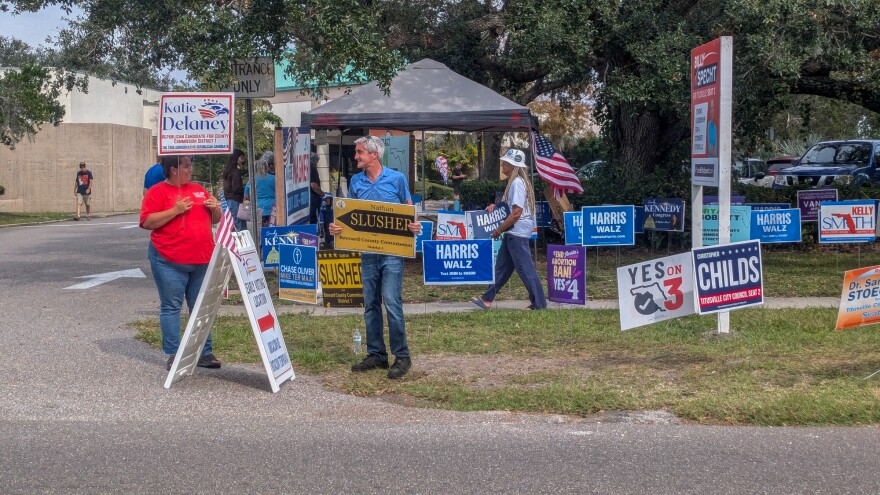
The week before Election Day, Slusher popped over to an early voting site in Titusville between service calls for his current job, to stand just off site and wave to voters. Slusher ran into his Republican candidate, Katie Delaney, doing the same thing; the two shared a friendly banter, with Delaney offering to grab Slusher some electrolyte-infused water.
For Delaney, environmental issues are also fiscal ones, including the Indian River Lagoon. She wants to see updates to Brevard’s sewage plants, and ideally even use the sales tax revenues to fund those; she also thinks the language in the SOIRL tax ordinance may need to be updated before it’s approved again.
“We need to get the muck out; we just need to figure out how to pay for it,” Delaney said. “Our half-cent sales tax does not deal with maintenance issues. It deals with capital. So I don't know if that's totally legal.”
Others on the SOIRL citizens’ oversight board have said muck removal is a capital improvement issue, not maintenance. Delaney said she hopes for the state’s attorney general to weigh in on that.
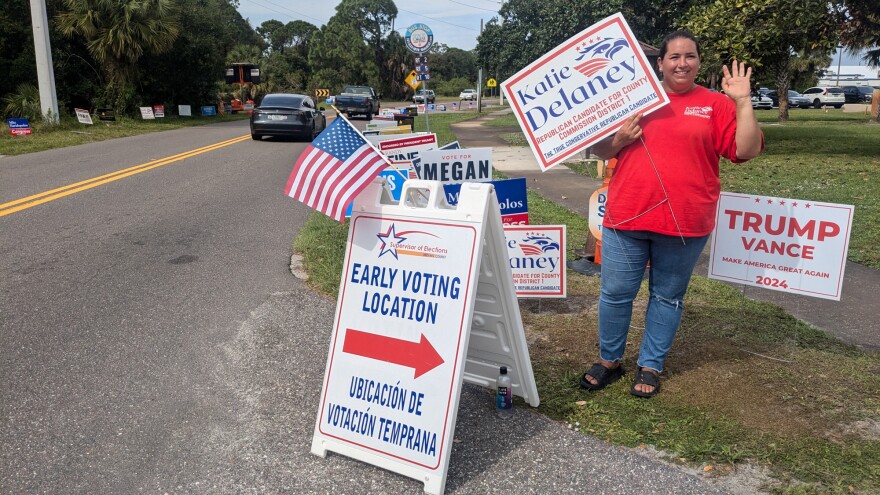
When it comes to her strengths over her opponents, Delaney points to her prior experience with government, including a county charter amendment she helped pass in 2022 to establish a process for recalling school board members.
Also on the topic of school boards, Delaney was a co-plaintiff in a First Amendment lawsuit against Brevard County Public Schools that was recently won on appeal, after two judges initially ruled against them. Along with Delaney, two other parents and Moms for Liberty, a far-right organization.
But while Delaney used to be a member of Moms for Liberty, she said she isn’t now, after learning of “philosophical differences” between herself and one of the group’s leaders. Specifically, Delaney took issue with a co-founder voting in favor of diversity, equity and inclusion (DEI) initiatives while publicly taking a stand against DEI, Delaney said.
Acknowledging growth will keep coming to Brevard, Delaney said she wouldn’t be afraid to hold developers accountable.
“Development is coming, and we're not going to stop it. But the thing is, we don't have to give them a 100% clear path to do whatever they feel like doing, however they feel like doing it,” Delaney said.
“We're already in an insurance crisis. And part of that is because we are not protecting our floodplain,” Delaney said. “I would like to bring forward policy to make sure we're doing that.”
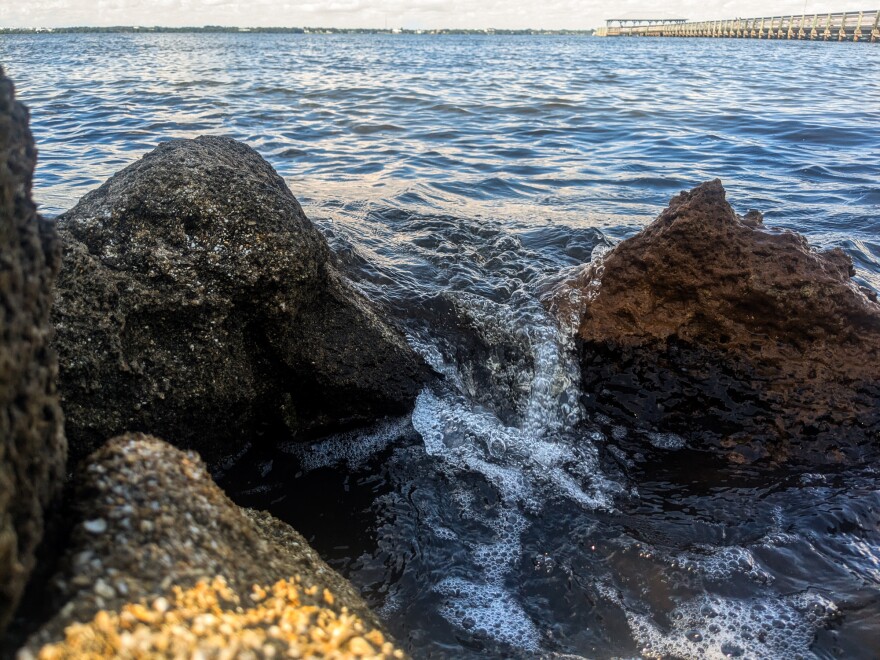
Although Delaney disagrees with her opponents on some things, most don’t really have anything to do with what their jobs would entail as a county commissioner, she said.
“As far as the nonpartisan issues that have to do with our job, we do agree on a lot,” Delaney said. “A lot of the differences are the way we get there.”
Brevard County voters can weigh in on what the pathway to restoring the Indian River Lagoon looks like through 7 p.m. on Tuesday, Election Day.
This story was focused on two of three county commission races in Brevard County this November. See all the current races/candidates in Brevard here.








